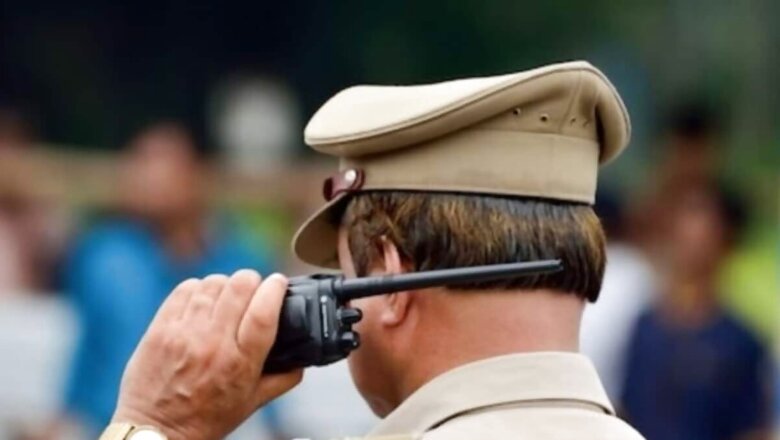
views
Indian Police Service (IPS) officer Vijay Raman, known for his courageous actions against notorious criminals such as Paan Singh Tomar and the terrorist Gazi Baba (mastermind of the Parliament attack), and for engineering the surrender of infamous figures like Phoolan Devi and Malkhan Singh, lived a life akin to that of a proverbial cat with nine lives. He survived at least nineteen life-threatening incidents.
In his yet-to-be-released memoir, Did I Really Do All This? Memoirs of a Gentleman Cop Who Dared to be Different (Rupa Publications), Vijay Raman provides an engaging account of his daring life, which ended in September 2023. The memoirs, published posthumously, carry an emotional note from his wife, Veena.
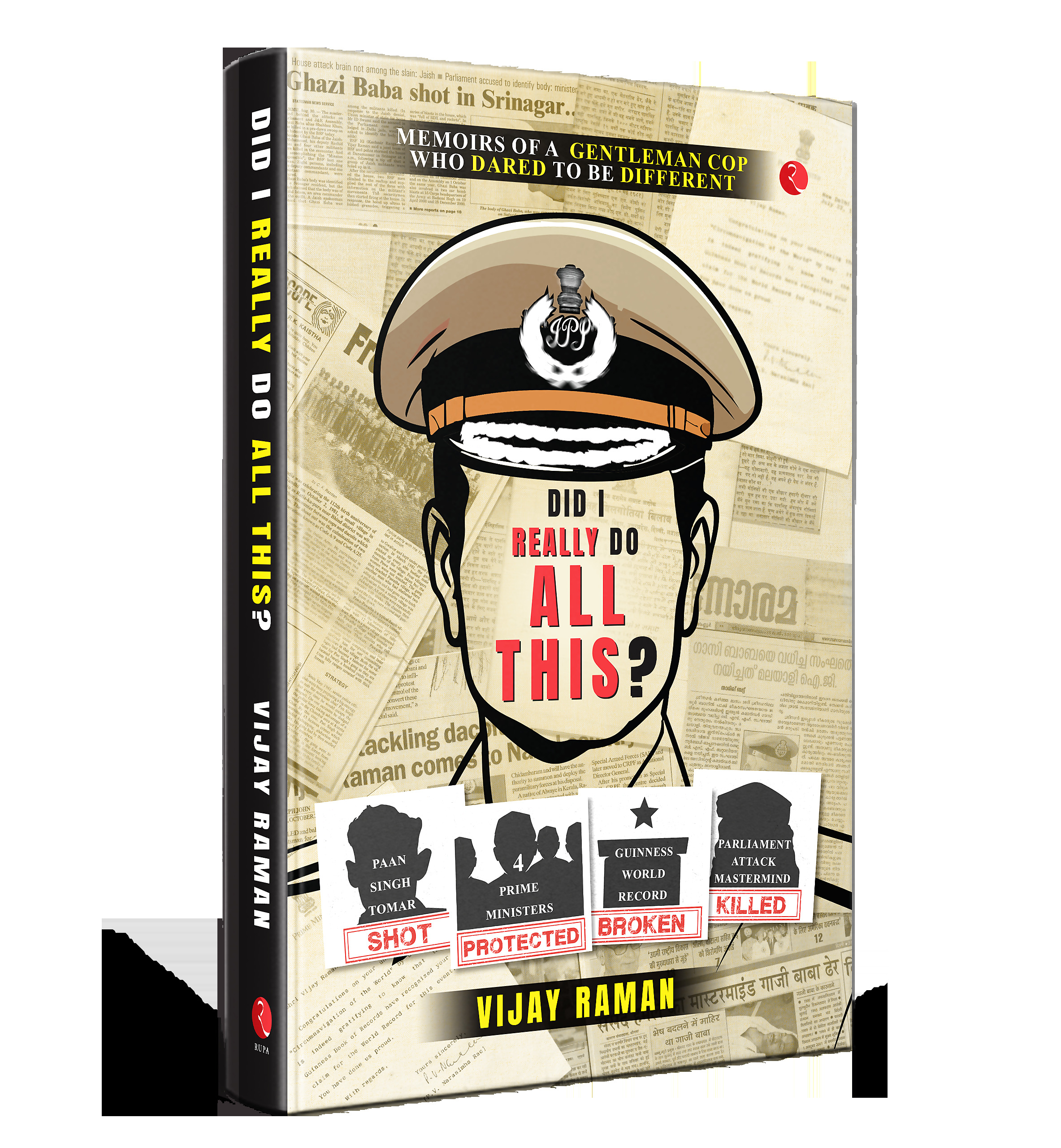
Vijay’s first brush with a life-threatening incident occurred in 1978 during his initial posting as Assistant Superintendent of Police (ASP) in Dabra, Madhya Pradesh, when a country-made bomb was thrown at his jeep by agitating students in Gwalior. The bomb fell and exploded nearby, but fortunately, no one was harmed.
In 1981, Vijay led a team that eliminated Paan Singh Tomar and his gang, who had terrorised villages in the region for years. In Did I Really Do All This? Memoirs of a Gentleman Cop Who Dared to be Different, the cop describes the encounter in detail with relish — bullets rained on the encounter team from all sides as they were caught in a crossfire between the dacoits and the police.
During Vijay’s tenure as Superintendent of Police (SP) Special Branch in Bhopal in 1984, the world’s worst industrial disaster occurred. On the night of 3 December 1984, more than 40 tonnes of methyl isocyanate gas leaked from the Union Carbide pesticide plant over Bhopal, killing and maiming hundreds. Vijay drove to the railway station himself to meet his parents, preferring not to inconvenience the driver with a late night shift. Within minutes, the gas had wreaked havoc across the city, and he was shocked to see the devastation. Remarkably, he and his parents, who were so close to the scene of destruction, were spared.
In 1998, as Inspector-General of Police (IGP) Security Jammu and Kashmir (J&K), Vijay was in Srinagar when a bomb blast occurred on the route he normally took to the office. That day, his driver chose an alternative route, and they narrowly avoided the explosion.
In 2000, as IG of the Border Security Force (BSF) in Jammu, Vijay was responsible for erecting a much-needed part of the fence between Pakistan and India under very adverse conditions. Enemy bullets rained down from across the border throughout the operation. In his memoir, readers will find details of some of the daring and potentially controversial decisions he made during this time.
Vijay was appointed IG of the BSF in Kashmir in 2003 with the covert mandate to capture Ghazi Baba, the mastermind behind the 2001 attack on the Indian Parliament. During an undercover operation, while scouting the site where the encounter with Ghazi Baba later occurred, an informer unexpectedly pointed out the terrorist himself. Vijay instinctively reached for the car door handle to apprehend him, only to be roughly pulled back by the informer, who urgently ordered the driver to accelerate and escape. The informer later explained that Ghazi Baba never left his hideout without being strapped with explosives. An attempt to apprehend him could have triggered a devastating explosion that would have obliterated everyone in the vicinity.
One of the most stressful and dangerous situations Vijay faced in his risk-laden career occurred as Special Director General (DG) of Anti-Naxal Operations with the Central Reserve Police Force (CRPF) in 2010. In April that year, over 70 CRPF personnel were massacred by Naxalites in Dantewada. The loss of his men weighed heavily on him, leading to a decline in his health. He neglected his meals and routinely forgot to take his medication.
Vijay came close to death during a personal adventure he undertook with a friend, circumnavigating the globe in an Indian-made car during the last 39 days of 1992. At a time when Indian manufacturing was still developing, their remarkable feat earned them a place in the Guinness Book of World Records. Throughout the 39 days of driving at high speeds across various countries, terrains, and political climates, they encountered only one accident. Despite being badly injured, Vijay found the strength to complete their challenge and set a new record.
Born on 18 January 1951, Vijay Raman was the son of a Second World War veteran from Kerala. Disturbed by the discrimination faced by local farmers as a young man, he decided to pursue a career in law and justice. He enrolled in an LLB programme, topping the exam and winning three gold medals. Vijay joined the elite Indian Police Service in 1975, and in a career span of 35 years, he distinguished himself as an outstanding and upright officer, winning accolades for bravery, courage and dedication to duty.
He began his illustrious career in 1976 as Assistant Superintendent of Police (ASP) in Dabra, an area notorious for dacoity in Chambal. As Additional Superintendent of Police (SP) in Gwalior, his adept handling of both student and lawyer agitations earned him significant recognition. Consequently, he was posted as SP in Bhind in 1980, a district known for its rugged ravines and several dreaded dacoits.
In 1981, while serving as Superintendent of Police in the dacoit-infested Bhind district of Madhya Pradesh, he successfully neutralised the notorious dacoit Paan Singh Tomar and his nine-member gang in a 14-hour encounter from dusk to dawn. For this remarkable feat, he was awarded the President’s Police Medal for Gallantry.
His leadership qualities, ability to build a network of informers, and exceptional interpersonal skills led to an upward trajectory in his career following this sensational encounter, which contributed to the decline of dacoity in the Chambal region. With a keen focus on known dacoits, he initiated joint operations with the Uttar Pradesh police, successfully orchestrating the surrender of infamous figures such as Phoolan Devi and Malkhan Singh. Always a reformer at heart, as Inspector General (Police) Chambal in 1999, he persuaded dacoit Raju Kushwaha to surrender.
During Rajiv Gandhi’s era, Vijay was handpicked to serve in the Special Protection Group (SPG). His career trajectory led him to the highest echelons of policing in the country, initially posted as Assistant Director and then as Deputy Director in the SPG from 1985 to 1995. During this period, he was part of the team responsible for the security and protection of India’s Prime Ministers. He worked with four Prime Ministers – Rajiv Gandhi, V.P. Singh, Chandra Shekhar, and P.V. Narasimha Rao. For his contributions, he received commendation certificates from the Prime Minister and was awarded the President’s Medal for Meritorious Service in 1991.
In 1997, following an out-of-turn promotion to Inspector General (IG) of CM Security and IG Security, he successfully established the Special Security Group for the Chief Minister of Jammu and Kashmir (J&K). Later, in 2000, his reputation as a hard taskmaster and a man of integrity earned him the challenging task of initiating the multi-crore project for fencing and flood-lighting the International Border with Pakistan in the Jammu region, a task where many others had failed. Through innovative approaches, he completed the first 25 kilometres of fencing at a cost lower than the estimated project budget. In recognition of his exemplary work in securing India’s international border with Pakistan, he was awarded the President’s Police Medal for Distinguished Service in 2001.
Fighting terrorism and demonstrating exemplary courage, Vijay ensured that the Indian flag was hoisted on 15th August 2003 at Lal Chowk, Srinagar. In one of the most challenging and successful anti-militancy operations in Jammu and Kashmir, he led a ten-hour, high-stakes encounter in Srinagar. After retirement, he served as a member of the Special Investigation Team (SIT) investigating the sensational Vyapam Professional Entrance Exam Scam in Madhya Pradesh.
Throughout his career, Vijay performed his duties to the best of his abilities. His motto remains a testament to his career: Winning without challenges is victory, but winning by overcoming challenges is history.
The author is a Visiting Fellow at the Observer Research Foundation. A well-known political analyst, he has written several books, including ‘24 Akbar Road’ and ‘Sonia: A Biography’. Views expressed in the above piece are personal and solely those of the author. They do not necessarily reflect News18’s views.










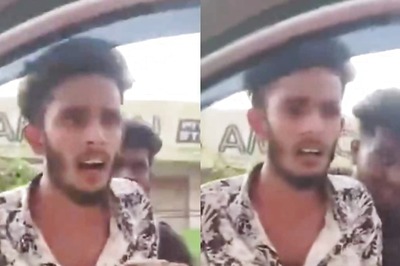


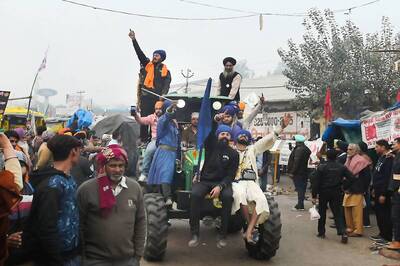



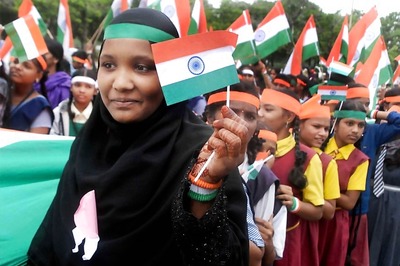

Comments
0 comment